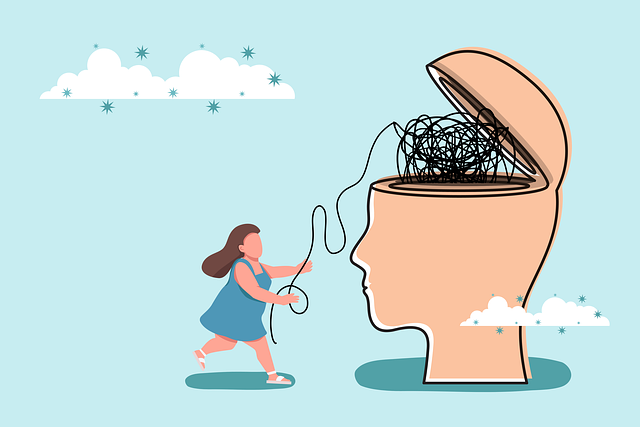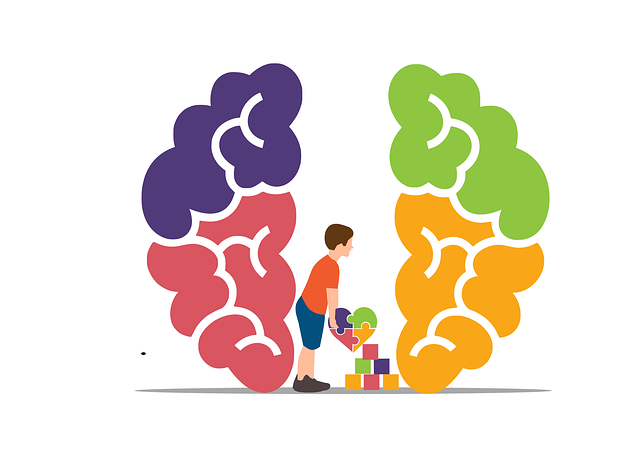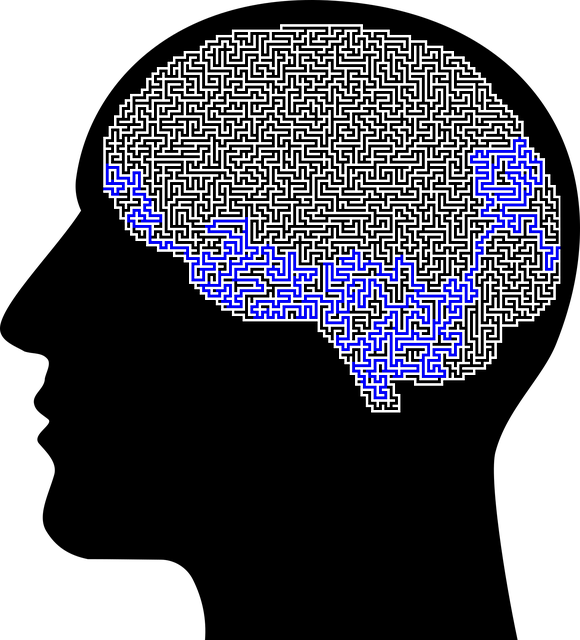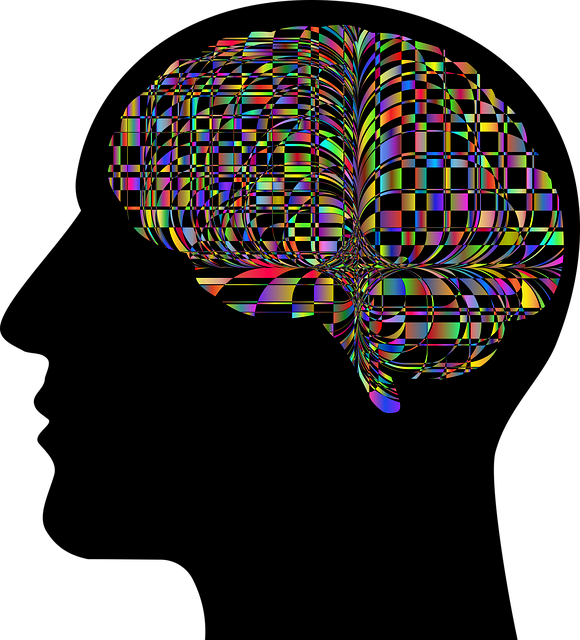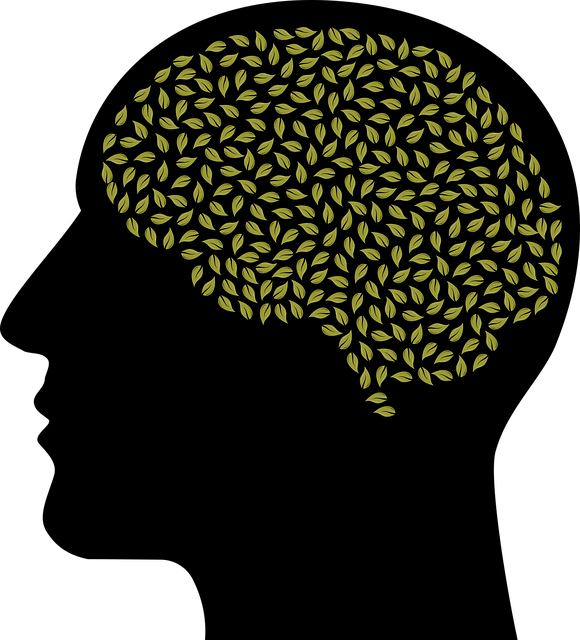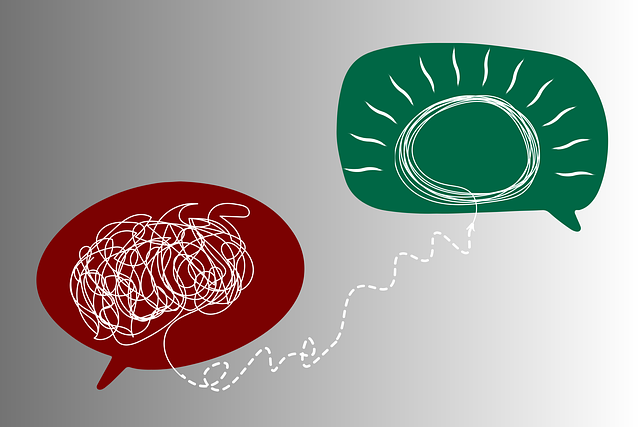Golden Family Counseling Therapy (GFCT) is a leading provider of comprehensive mental health services. They achieve their mission through three primary avenues: educational programs, public policy advocacy, and interactive therapy sessions. Their education program focuses on dynamic, style-diverse curriculum including multimedia presentations, practical exercises, case studies, and group discussions to teach skills like trigger identification, mindfulness cultivation, resilience building, and healthy coping mechanisms. GFCT evaluates their initiatives through both qualitative (client feedback) and quantitative (KPIs like attendance rates and mental health scores) methods, ensuring continuous improvement and best practice alignment.
Mental health education is a cornerstone in fostering well-being within communities. This article explores the design of an effective program, focusing on key strategies employed by Golden Family Counseling Therapy. We begin by dissecting mental health misconceptions to break down stigma and promote awareness. The subsequent sections delve into curriculum design, interactive learning techniques, accommodating diverse learners, and evaluation metrics. By examining these components, we aim to provide a comprehensive framework for creating impactful mental health educational programs, mirroring the successful approach of Golden Family Counseling Therapy.
- Understanding Mental Health: Breaking Stigmata and Promoting Awareness
- Designing an Engaging Curriculum: Key Components for Effective Education
- Incorporating Interactive Strategies: Making Learning Experiential
- Addressing Different Learning Styles: Tailoring the Program to Diverse Needs
- Evaluating and Measuring Impact: Assessing the Success of Golden Family Counseling Therapy's Program
Understanding Mental Health: Breaking Stigmata and Promoting Awareness

Understanding mental health is a pivotal step in fostering a supportive environment for everyone’s well-being. By breaking down stigma, we can create a culture where conversations about mental health are as open and common as discussions about physical health. This shift is crucial for encouraging individuals to seek help without fear of judgment or discrimination. At Golden Family Counseling Therapy, we believe education is a powerful tool in this process.
Our Mental Wellness Podcast Series Production aims to provide accessible information on various mental health topics, offering insights and personal stories that challenge stereotypes. Additionally, through Mental Health Policy Analysis and Advocacy, we promote systemic changes that ensure everyone has access to quality mental health resources. By combining education, awareness, and advocacy, we work towards a society where mental illness is met with empathy and understanding, ultimately boosting confidence in individuals managing their well-being.
Designing an Engaging Curriculum: Key Components for Effective Education

Designing an engaging curriculum is paramount for effective mental health education programs. At Golden Family Counseling Therapy, we believe that creating an interactive and dynamic learning environment fosters better comprehension and encourages active participation from all learners. Incorporating a mix of theoretical knowledge, practical exercises, case studies, and group discussions ensures that participants not only gain insights but also develop the skills needed to navigate their own mental wellness journeys. A well-structured curriculum should include modules on identifying emotional triggers, cultivating mindfulness, building resilience, and promoting healthy coping mechanisms – all key components for enhancing inner strength and confidence boosting strategies.
Additionally, leveraging interactive tools such as multimedia presentations, role-playing scenarios, and digital resources can significantly enhance the learning experience. These methods cater to diverse learning styles and keep the program engaging, thereby increasing knowledge retention. By integrating mental wellness coaching programs development techniques that encourage self-reflection and peer support, participants gain valuable insights into their emotional well-being. Ultimately, a compelling curriculum designed with these principles in mind prepares individuals not just to understand mental health but also to actively nurture their inner strength.
Incorporating Interactive Strategies: Making Learning Experiential

Incorporating interactive strategies is a key aspect of designing an effective mental health education program, as it transforms learning into an engaging and experiential journey. At Golden Family Counseling Therapy, we recognize that traditional lecture-based sessions often fall short in fostering meaningful understanding and behavioral change. Thus, our programs emphasize active participation to create a dynamic learning environment. This approach allows participants to explore complex topics hands-on, encouraging critical thinking and personal reflection.
One such interactive strategy is incorporating mindfulness meditation practices as a way to promote mental wellness journaling exercises. By guiding individuals through meditative techniques, we enable them to develop self-awareness and learn valuable conflict resolution skills. These exercises not only enhance their ability to manage stress but also foster empathy and effective communication, all while providing practical tools for navigating daily challenges.
Addressing Different Learning Styles: Tailoring the Program to Diverse Needs

In designing a comprehensive mental health education program like that offered by Golden Family Counseling Therapy, it’s essential to recognize and cater to diverse learning styles. Not everyone absorbs information in the same way; some are visual learners, while others thrive on kinesthetic or auditory experiences. A well-rounded program should incorporate various teaching methods to engage all participants effectively. For instance, incorporating multimedia elements, interactive workshops, and group discussions ensures that every learner is actively involved. This tailored approach not only enhances knowledge retention but also promotes deeper understanding and empathy regarding mental health issues.
By addressing different learning styles, mental health education programs can significantly impact their effectiveness. Visual aids, such as infographics and diagrams, can simplify complex concepts related to anxiety relief or burnout prevention strategies for healthcare providers. Hands-on activities and role-playing exercises cater to kinesthetic learners, enabling them to apply concepts in realistic scenarios. Audio resources, like podcasts or lectures, are ideal for auditory learners, allowing them to process information at their own pace. Such inclusivity ensures that the program resonates with a wide range of participants, fostering an environment where everyone can benefit from and contribute to mental health education.
Evaluating and Measuring Impact: Assessing the Success of Golden Family Counseling Therapy's Program

Evaluating the impact of any mental health initiative is paramount to understanding its success and areas for improvement. Golden Family Counseling Therapy (GFCT) employs a multifaceted approach to measure the effectiveness of their programs, ensuring that every interaction contributes to positive change. They assess client satisfaction through regular feedback sessions, allowing individuals to voice their experiences and offer valuable insights. This qualitative data provides a human-centric perspective on the program’s impact, capturing individual stories of transformation and healing.
Quantitative assessments are also integral to GFCT’s evaluation process. They track key performance indicators (KPIs) such as attendance rates, client retention over time, and changes in mental health scores through pre and post-program surveys. By comparing these metrics against established benchmarks and industry standards, GFCT can objectively determine the success of their interventions. This data-driven approach enables them to adapt and refine their programs, ensuring they remain responsive to the evolving needs of participants and align with best practices in mental wellness coaching.
The comprehensive mental health education program designed by Golden Family Counseling Therapy breaks down barriers and fosters understanding through a multi-faceted approach. By combining awareness initiatives, engaging curricula, interactive learning strategies, and consideration of diverse learning styles, this program empowers individuals to recognize and address mental health concerns effectively. Through rigorous evaluation and measurement, the success of this model underscores its potential to significantly impact community well-being, making it a valuable resource for promoting mental health literacy and support.


